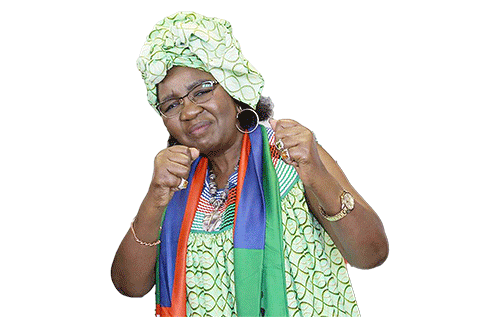Despite a court case instituted by Swapo members against the party’s decision not to elect a new party president several months after the death of president Hage Geingob in February, the party has stuck to its guns that its decision will eliminate factionalism and destabilisation of the institution.
This stance was made loud and clear by the party’s secretary general Sophia Shaningwa in an answering affidavit submitted to the High Court on Friday.
She said Swapo has managed its affairs over the years with measured flexibility, only applying it when, in the party’s view, circumstances demand it. One such decision was that a particular position,
especially that of the president, would not be open for challenge or elections at an elective congress, despite the party’s constitutional requirements.
“This has served the party well over the years, and promotes harmony and stability within the party,” said the veteran politician.
Shaningwa went on to explain that Swapo’s second president Hifikepunye Pohamba stood unopposed for the position of party president at the party’s 5th elective congress in 2012.
She justified several instances where the party applied its constitution with measured flexibility.
“The fact that unity is a foundational objective of Swapo (and, in my view, a factor in the party’s decision) is markedly evident in its constitution, which provides, among other things, that one of Swapo’s aims is to unite the people of Namibia, irrespective of race, religion, sex or ethnic origin into a democratic, vibrant and peace-loving nation,” she submitted.
Counter-revolutionary
In the affidavit, Shaningwa also came out all guns blazing, particularly against party member Reinhold Shipwikineni, one of those who instituted the case, saying he exhibits retrogressive tendencies such as chauvinism and personality cults.
“The constitution also requires members to be on guard against individuals joining the party with counter-revolutionary and other subversive motives and tendencies. The first applicant (Shipwikineni) manifestly appears to fall into this category,” she stated.
Shipwikineni, who initially challenged the party single-handedly before others joined his cause, was described by Shaningwa as destructive, divisive and having a mischievous character. “He politically thrives on propagating lies and misinformation about the party’s leadership. He naively and cynically believes that an insult-based public discourse is part of the constitutionally-protected fundamental freedom of
expression. In fact, he is a muckraking politician with a misguided obsession with searching out dirt against prominent leaders of the party,” Shaningwa ranted.
Flawed
She further contended that the applicants challenging the party’s decision failed to adequately plead their case.
“The relationship between Swapo and any particular member is contractual, and in proceedings such as this, the contract must be alleged as required in terms of the applicable rules of the High Court,” she stated.
She said the group did not provide sufficient details about the contractual basis of their claim, which would be addressed through an exception during the hearing.
Moreover, Shaningwa pointed out the procedural deficiencies in the group’s affidavits, particularly highlighting that Shipwikineni, the lead applicant, did not make essential statements to confirm he was acting on behalf of the group. “This is a fatal omission, as counsel shall demonstrate at the hearing,” she emphasised.
She also criticised the confirmatory affidavits filed by the other applicants as being too vague, and not appropriately supporting their claims. The court case revolves around two main points of contention: the validity of the Swapo central committee’s decision to schedule an extraordinary congress, and an order for the court to mandate such a congress within 30 days of its ruling.
However, Shaningwa pointed out that the group has not directly challenged the decision itself, but rather its “adoption” and “implementation,” which she described as a flawed choice of remedy.
Context
She reiterated that before 2004, Swapo’s succession planning and the management of internal elections had maintained party unity and served Swapo well.
“The position of the president of Swapo was not contested at successive congresses since the 1960s to 2012, notwithstanding the party’s constitution requiring Swapo to hold an elective congress every five years,” Shaningwa noted. This approach, she argued, demonstrated a “lawful way of applying the party’s constitution with flexibility.”
She also highlighted that after internal conflicts arose following an extraordinary congress in 2004, Swapo adopted new rules to prevent future disunity.
These rules stipulated that the party’s presidential candidate should automatically be the party president, and in the event of the president’s ineligibility, the vice president would be the candidate.
“In order to preserve the cardinal principle of Swapo Party unity, a candidate who qualifies to be on the Swapo ticket for candidature of the president of the republic should come from the most senior Swapo party members,” she elaborated. Shaningwa stressed that Swapo’s current rules had been in place since 2004 to ensure that the selection of the party’s presidential candidate did not cause internal division. Furthermore, she detailed that following the death of president Geingob in February this year, Swapo’s central committee decided not to hold an extraordinary congress immediately, given the “sombre national mourning” and logistical challenges.
Instead, they scheduled an extraordinary congress for April 2025 to elect a new president to complete Geingob’s unexpired term.
Shaningwa added that this decision was within the party’s constitutional framework, which allows for flexibility in extraordinary circumstances.
-alettashikololo@nepc.com.na



